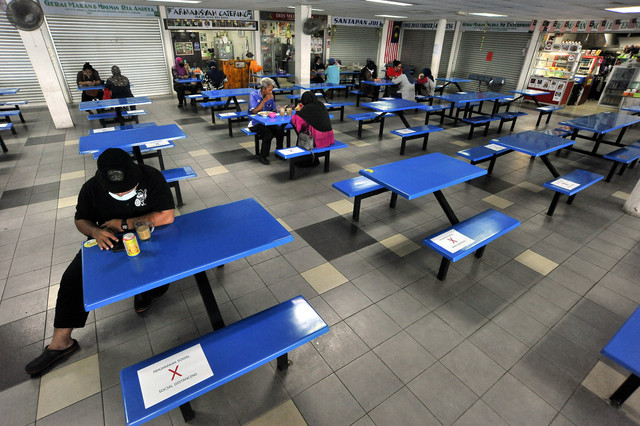KOTA KINABALU: The Sabah state government still allows dine-ins under the new standard operating procedures (SOP) released on Friday.
Spokesperson Datuk Seri Masidi Manjun in a statement said eateries are allowed to operate for take-aways and dine-ins, however only two individuals are allowed to sit in the same table.
“Premises owner need to make sure only low-risk customers are allowed to enter, which can be checked from MySejahtera application.
“Buffets are allowed, but disposable plastic gloves must be made available for the customers. Children below 12 are not allowed.
“Meanwhile, bars and KTV or entertainment activities are not allowed to operate,” he added.
The National Security Council (MKN) earlier released SOPs banning buffets and sale of alcohol.
Masidi said the MKN had made a mistake when issuing the SOPs earlier and issued a new set after amending the rules on alcohol and buffets.
“(They) C&P (copied and pasted) from the old SOP,” he said.
The latest SOP also stated that cross-district movement in Sabah is still not allowed.
However, Kota Kinabalu City with neighbouring Putatan and Penampang districts will be considered as one district.
“Cross-district movement is not allowed, except for emergency (medical and death), work (government and private), Covid-19 vaccination appointments and essential services” Masidi said.
Most of the SOPs remain the same, including inter-state travel, where the state government is only allowing Sabahan spouses, permanent residents, essential services with immigration passes, civil servants working in Sabah, official business, emergency or hospital reviews from Sarawak and transporters with related supporting documents to enter Sabah.
During this phase of NRP, Sabahans are encouraged to stay at home and only two occupants of a house allowed to go out to get food, medical and essential supplies.
Meanwhile, long-distance couples are allowed to cross district with police permit.
The SOP also mentioned that the workforce capacity in the private sector is 80 per cent, including operations departments.
Thirty per cent state civil servants are allowed to be in offices while the other 70 per cent work from home.
For federal civil servants, 60 per cent are allowed to be at the office while the other 40 percent work from home, excluding frontliners, security services, defences and enforcement.
Economic sectors in the essential services and their chains are also allowed to operate with 80 per cent workers capacity, including services related to food and beverages, medical, water, energy, security, transportation, banking, community credit, e-commerce, hotels (not tourism-related), constructions, forestry (enforcement only), wildlife, logistics and professional services.


